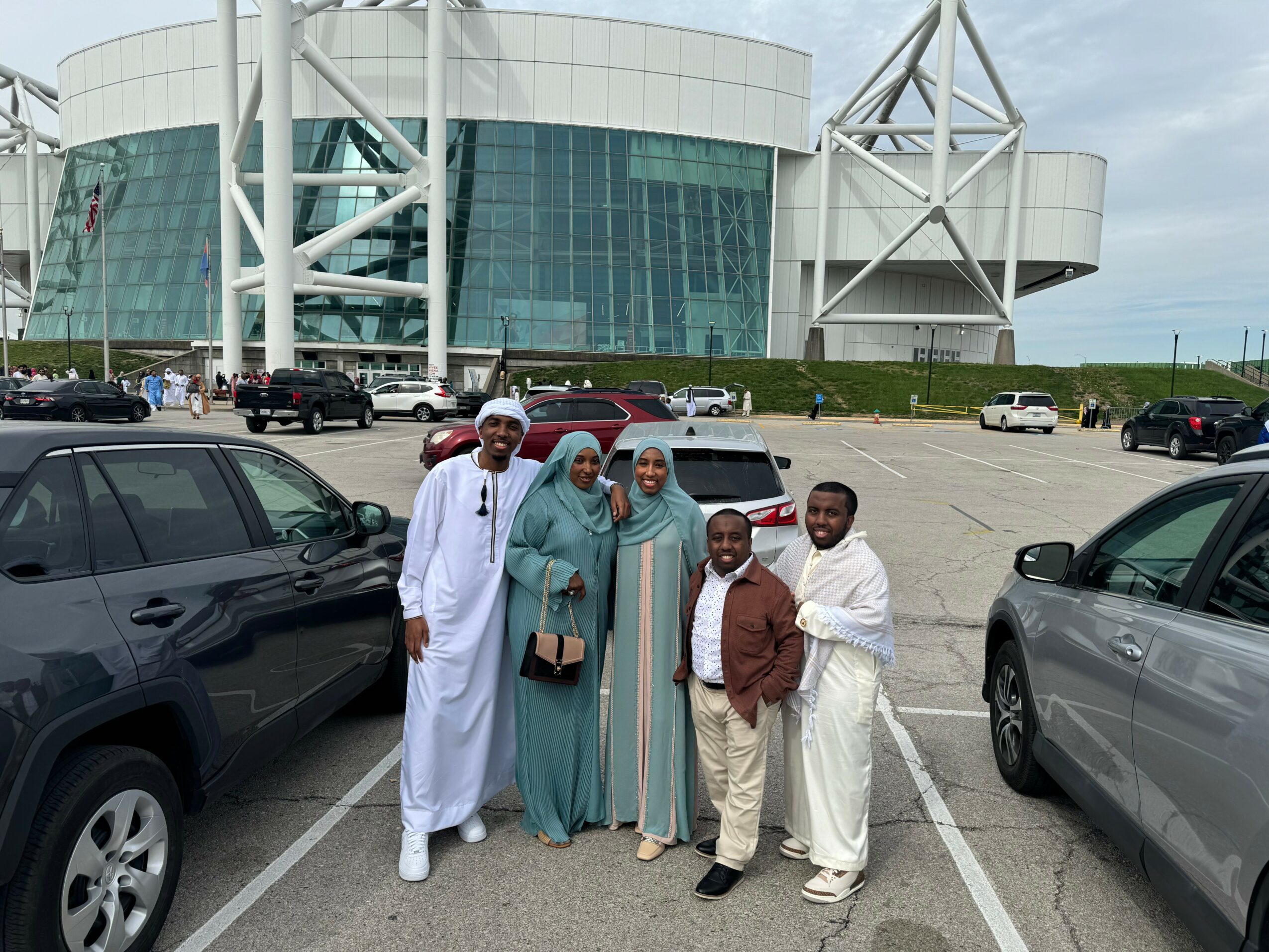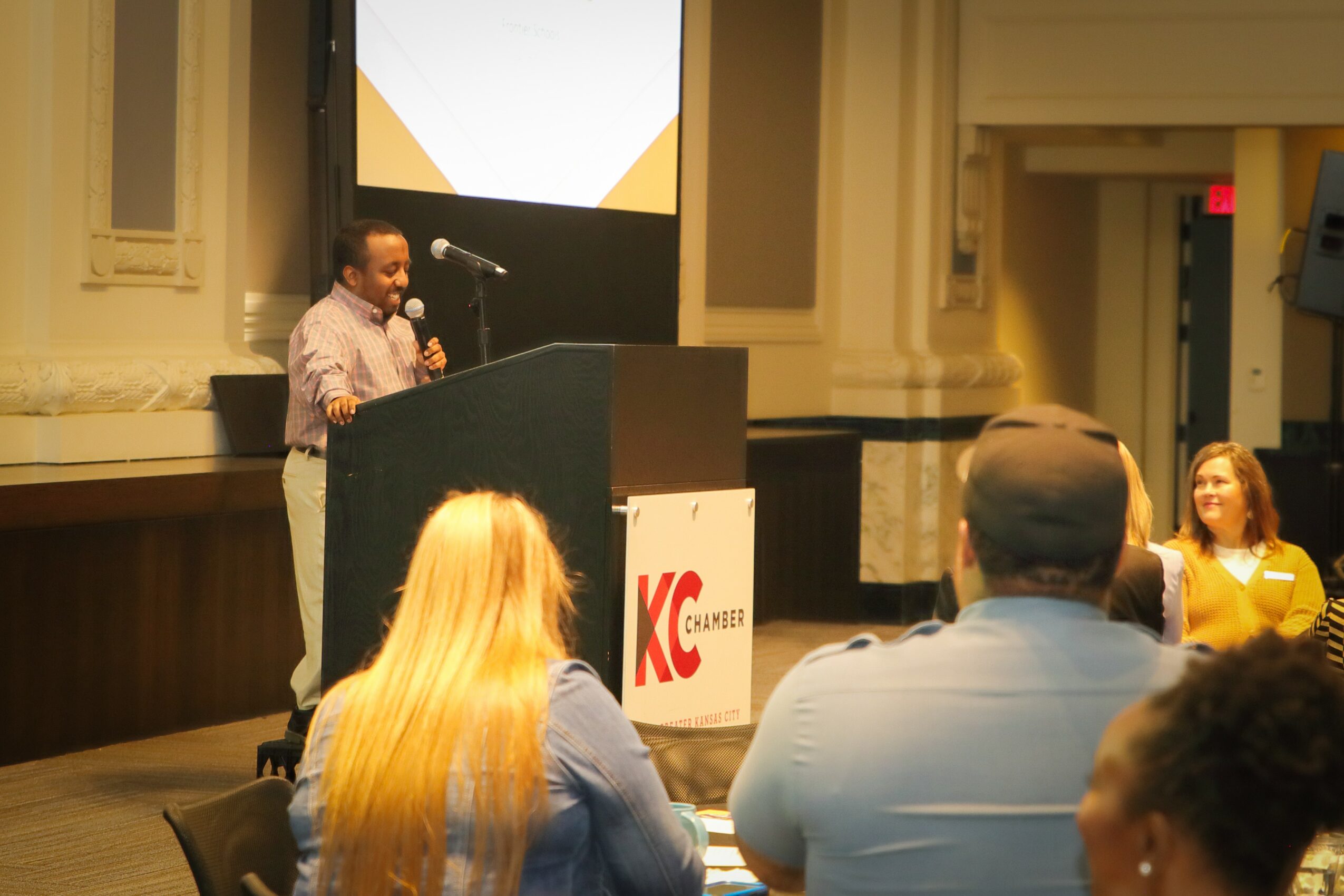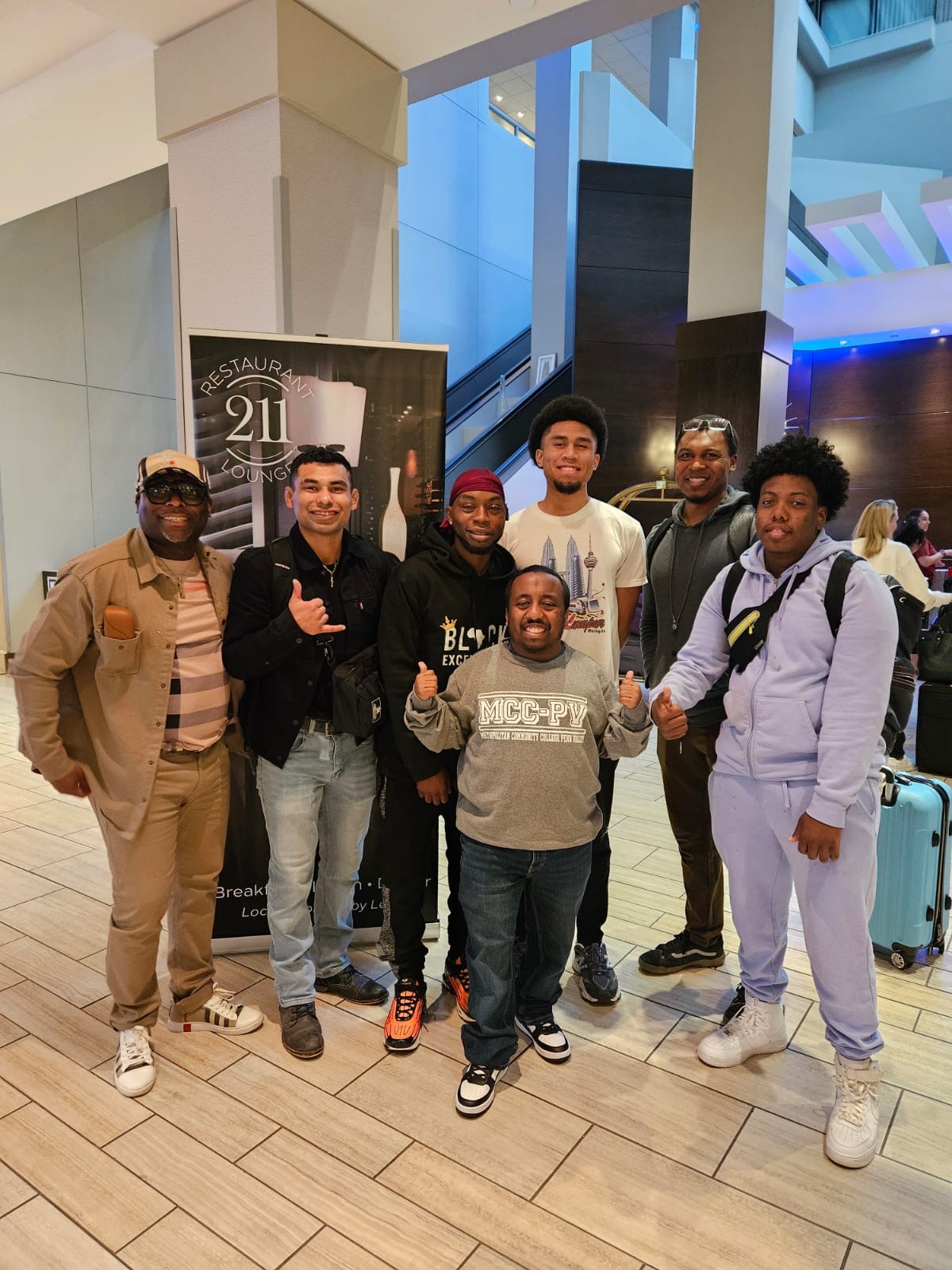

Today we’d like to introduce you to Nabil Abas.
Hi Nabil, we’re thrilled to have a chance to learn your story today. So, before we get into specifics, maybe you can briefly walk us through how you got to where you are today?
Nabil Abas is a proud community college graduate, student advocate, and higher education professional whose story reflects the power of access, representation, and second chances. His journey began not with a clear roadmap, but with a desire to rewrite his own narrative — and to help others do the same.
Growing up as the oldest of four siblings, Nabil carried a deep sense of responsibility to lead by example, even when the path forward wasn’t clear. In high school, he faced academic and personal challenges that made college seem like a distant goal. His GPA was low, his ACT scores weren’t where he wanted them to be, and he often found himself moving from one school to another, trying to find direction. But beneath that uncertainty was determination — the understanding that his story didn’t have to end where it began.
One Saturday afternoon, Nabil attended an event at Metropolitan Community College (MCC) — Penn Valley campus he knew little about at the time. That visit changed everything. What was supposed to be a simple college visit became a defining moment. He was welcomed by staff who believed in him before he fully believed in himself. That environment of care and community sparked something within him. MCC became the place where he not only began his college education but also began to rebuild his confidence and sense of purpose.
As a student at MCC, Nabil became a Student Ambassador in the Admissions Office, sharing his story with prospective students and families. It was in that role that he found his voice — realizing that his experiences could inspire others who, like him, were unsure if college was possible. He learned the power of connection, mentorship, and storytelling, and it ignited a lifelong passion for student success and educational equity.
After completing his studies at MCC, Nabil transferred to the University of Missouri–Kansas City (UMKC), where his passion for advocacy deepened. He worked with the First Gen Roo Program, supporting first-generation college students, and within the Multicultural Student Affairs Office, creating spaces where underrepresented students could find belonging and visibility. Both experiences reinforced his belief that higher education isn’t just about earning a degree — it’s about being seen, supported, and empowered to thrive.
When Nabil earned his Bachelor’s Degree in Communication Studies, he was in that familiar phase of transition — searching for purpose and the next step in his career. Then, one of his mentors from MCC reached out and asked if he would consider coming back to serve as an Academic Advisor. It felt like a full-circle moment — an opportunity to return to the place that changed his life and to pour into the next generation of students walking the same halls he once did.
He accepted and went on to serve as the Academic Advisor for Project Success, MCC’s federally funded TRIO Student Support Services program. There, Nabil supported students from diverse backgrounds — first-generation, low-income, and underrepresented — helping them navigate the challenges of college and life. In that role, he not only advised students but mentored them, serving as a living example that perseverance and community can transform a story.
Today, Nabil serves in Career Services at MCC–Penn Valley as a Career Services Coordinator, where his work continues to be rooted in purpose and impact. He helps students connect their education to their career goals, discover their passions, and prepare for the workforce through hands-on programming, career readiness workshops, and one-on-one guidance. He also collaborates with faculty, staff, and community partners to build bridges that extend beyond the classroom — ensuring that MCC students are equipped to thrive both academically and professionally.
For Nabil, his “why” has always been clear: to be the person he once needed — a mentor, a guide, and a believer in students’ potential. His story represents resilience, belonging, and the power of opportunity. It shows that where you start doesn’t determine where you’ll finish, and that every setback can become a setup for purpose.
From a student who once questioned if college was for him to now being a professional who helps others find their path, Nabil’s journey has truly come full circle. His life’s work continues to be a testament to the idea that when we invest in people — their dreams, their growth, and their belief in themselves — we help change not just one story, but entire communities.
We all face challenges, but looking back would you describe it as a relatively smooth road?
Not at all — the road definitely hasn’t been smooth. But I’ve learned that the parts of the journey that feel the hardest are often the ones that teach you the most about who you are and what you’re capable of.
When I look back, I see a story built on resilience, not perfection. In high school, I faced a lot of uncertainty. My grades weren’t the best, my ACT scores were low, and I didn’t have a clear plan for what was next. I was in and out of different schools trying to find stability, and honestly, college didn’t feel like it was meant for someone like me. I didn’t always see myself reflected in that world, and I didn’t know how to even start navigating it.
But at the same time, I was the oldest of four, and that reality pushed me to grow up fast. I knew my siblings were watching me, and I wanted them to see that it was possible to change your story. That sense of responsibility — and the desire to be a better example — became my motivation even when I didn’t have everything figured out.
When I first stepped onto the MCC campus, I was nervous. I didn’t know anyone, didn’t have a roadmap, and didn’t even fully understand what college life meant. But I showed up — and that’s where everything started to shift. Getting involved as a Student Ambassador opened doors I never expected. It gave me confidence, community, and purpose. But that didn’t mean it was easy. There were semesters I doubted myself, moments when balancing school and life felt overwhelming, and times I questioned whether I belonged in those spaces.
Transferring to UMKC came with its own challenges. It was a larger environment, and I had to adjust all over again. But I was also discovering my voice. Through my work with the First Gen Roo Program and the Multicultural Student Affairs Office, I saw the power of representation and advocacy. Still, imposter syndrome was real. I often felt like I had to prove that I deserved to be in the room — that my story, even with its imperfections, was enough.
When I graduated with my Bachelor’s, I hit another season of uncertainty. Like many new graduates, I was job searching and trying to figure out what came next. There were moments of discouragement, times when doors didn’t open as quickly as I hoped. But that’s when one of my mentors from MCC called and asked if I’d ever consider coming back — and that moment reminded me that sometimes, life brings you full circle when you’re ready to serve with purpose.
Even in my professional journey — as an Academic Advisor with Project Success and now in Career Services — there have been challenges. Leading programs, building relationships, and showing up for students every day requires patience and heart. There are long days, moments of doubt, and constant learning curves. But the difference now is that I understand my “why.” I know that every obstacle I faced as a student allows me to better connect with the students I work with today.
My road hasn’t been smooth, but I wouldn’t trade it. The challenges taught me empathy, humility, and perseverance. They taught me that growth often happens in uncomfortable spaces. And most importantly, they taught me that success isn’t just about where you end up — it’s about how you get there, who you bring with you, and how you use your story to inspire others.
If anything, my journey represents what I now tell my students all the time: your starting point doesn’t define your destination. The setbacks, the struggles, the detours — they’re all part of the story that shapes who you become. And for me, those very moments of uncertainty are what gave me the clarity, conviction, and compassion I carry into every part of my work today.
Can you tell our readers more about what you do and what you think sets you apart from others?
Today, I have the privilege of serving in Career Services at Metropolitan Community College–Penn Valley, where I focus on helping students connect their education to their future. My work sits at the intersection of purpose, preparation, and opportunity. Every day, I get to help students explore career paths, discover their strengths, and gain the confidence to step into the next chapter of their journey — whether that’s transferring to a university, applying for jobs, or entering straight into the workforce.
What I specialize in — and what I’m known for — is relationship building and storytelling. I approach career development not just as a transactional process, but as a transformational one. It’s not just about resumes and interviews or career fairs — it’s about helping students see the bigger picture of who they are and what they bring to the table. I use my own lived experiences to show our students that their background and challenges, no matter how unconventional, is not a barrier — it’s a foundation.
I’m proud to say that in my role, I’ve been able to collaborate across campus with faculty, staff, and community partners to build programs that bring career readiness to life. That includes workshops, classroom presentations, one-on-one career coaching, and initiatives like “Career Services on the Move” — where I meet students where they are, both literally and figuratively. These efforts make career development accessible, approachable, and culturally relevant for our students.
What sets me apart, I think, is my student-centered approach and my ability to meet our students with empathy and authenticity. Because I’ve walked in their shoes, I understand that career conversations aren’t just about professional goals — they’re often about identity, fear, and hope. I work hard everyday to create a space where they feel seen, heard, and believed in.
I’m most proud of being able to come full circle back to a world-class institution in which it served me — from once being a student who questioned his own potential to now being the person who helps others discover theirs now. Every success story — every student who lands a job, changes majors with clarity, or simply gains confidence in their abilities — feels like a win for me, because it reminds me why I do this work.
At the heart of it all, my work is about connection. Connecting students to opportunities beyond what they realize is there for them. Connecting learning to purpose is what our students seek. And connecting the dots between where someone starts and where they’re destined to go. That’s what drives me every single day — and it’s what continues to make this work meaningful far beyond the job title I have.
What do you like best about our city? What do you like least?
What I love most about Kansas City is the sense of community. There’s something powerful about how people here look out for one another and take pride in where they come from. Kansas City has this small-town feel wrapped in big-city opportunity — a place where you can still build real connections and where hard work and heart really matter.
I love how diverse our city has become, too. Each neighborhood tells its own story — from the local businesses and cultural festivals to the art, food, and music scenes that reflect so many different backgrounds. For me, it’s that blend of culture, creativity, and connection that makes Kansas City feel like home. It’s also what makes working at MCC so special — our students represent the very heart of this city’s diversity and determination.
What I like least isn’t so much about the people, but about the gaps in opportunity that still exist. Too often, success depends on where you start or who you know, and I’ve seen firsthand how many talented people go unnoticed or unsupported. There’s still work to do to make sure every person in Kansas City — regardless of zip code, background, or circumstance — has access to the same doors of opportunity.
But that’s also what motivates me. I believe Kansas City has everything it needs to be a city where opportunity truly meets potential — and I’m proud to be part of the work that’s helping move us closer to that vision.















